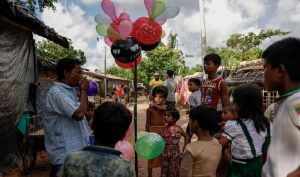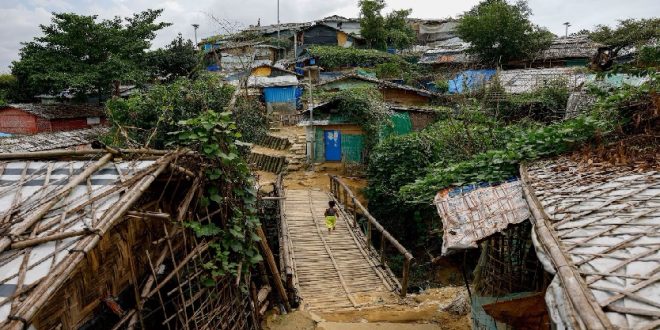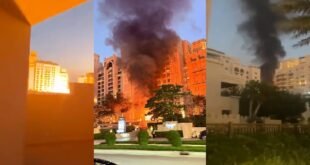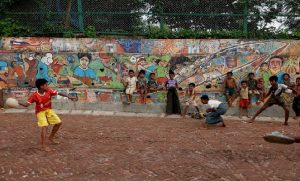26-11-2024
NAYPYIDAW: Militant recruitment and violence have escalated in Cox’s Bazar refugee camps, where thousands of Rohingya insurgents have emerged among over a million displaced people, according to sources and internal aid reports reviewed by Reuters.
“We need to fight to take back our lands,” said 32-year-old Rafiq, who spent weeks fighting in Myanmar before returning after he was shot in the leg.
The Rohingya, a mainly Muslim group that is the world’s largest stateless population, started fleeing in droves to Bangladesh in 2016 to escape what the United Nations has called a genocide at the hands of Buddhist-majority Myanmar’s military.
A long-running rebellion in Myanmar has gained ground since the military staged a coup in 2021. It involves a complex array of armed groups with Rohingya fighters now entering the fray.
Many have joined groups loosely allied with their former military persecutors to fight the Arakan Army ethnic militia that has seized much of the western Myanmar state of Rakhine, from which many Rohingya fled.
Reporters interviewed 18 people who described the rise of insurgent groups inside Bangladesh’s refugee camps and reviewed two internal briefings on the security situation written by aid agencies in recent months.
The news agency is reporting for the first time the scale of recruitment by Rohingya armed groups in the camps, which totals between 3,000 and 5,000 fighters.
Media is also revealing specifics about failed negotiations between the Rohingya and the Arakan Army, inducements offered by the junta to Rohingya fighters such as money and citizenship documents, as well as about the cooperation of some Bangladesh officials with the insurgency.
Several of the people who include Rohingya fighters, humanitarian workers and Bangladesh officials spoke on condition of anonymity or that only their first name be used.
 Bangladesh’s government did not respond to Reuters’ questions, while the Myanmar junta denied in a statement to Reuters that it had conscripted any “Muslims.”
Bangladesh’s government did not respond to Reuters’ questions, while the Myanmar junta denied in a statement to Reuters that it had conscripted any “Muslims.”
“Muslim residents requested protection. So, basic military training was provided in order to help them defend their own villages and regions,” it said.
The two largest Rohingya militant groups, the Rohingya Solidarity Organization (RSO) and the Arakan Rohingya Salvation Army (ARSA) do not appear to have mass support in the camps in Cox’s Bazar, said Shahab Enam Khan, an international relations professor at Bangladesh’s Jahangirnagar University but the emergence of trained Rohingya fighters and weapons in and around the camps is regarded as a ticking time bomb by Bangladesh, one security source said. Some 30,000 children are born each year into deep poverty in the camps, where violence is rife.
Disillusioned refugees could be drawn by non-state actors into militant activities and pushed further into criminal enterprises, said Khan. “This will then suck in regional countries, too.”
After a boat ride from near the camps to the western Myanmar town of Maungdaw around the midyear monsoon, Rohingya insurgent Abu Afna said he was housed and armed by junta troops.
In the seaside town where the military is fighting the Arakan Army for control, Rohingya were sometimes even billeted in the same room with junta soldiers.
“When I’d be with the junta, I would feel that I am standing next to the same people who raped and killed our mothers and sisters,” he said. (Int’l Monitoring Desk)
 Pressmediaofindia
Pressmediaofindia





